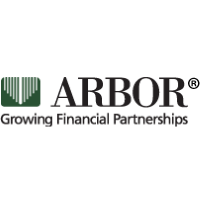
Arbor Realty Trust Inc
NYSE:ABR


| US |

|
Johnson & Johnson
NYSE:JNJ
|
Pharmaceuticals
|
| US |

|
Berkshire Hathaway Inc
NYSE:BRK.A
|
Financial Services
|
| US |

|
Bank of America Corp
NYSE:BAC
|
Banking
|
| US |

|
Mastercard Inc
NYSE:MA
|
Technology
|
| US |

|
UnitedHealth Group Inc
NYSE:UNH
|
Health Care
|
| US |

|
Exxon Mobil Corp
NYSE:XOM
|
Energy
|
| US |

|
Pfizer Inc
NYSE:PFE
|
Pharmaceuticals
|
| US |

|
Palantir Technologies Inc
NYSE:PLTR
|
Technology
|
| US |

|
Nike Inc
NYSE:NKE
|
Textiles, Apparel & Luxury Goods
|
| US |

|
Visa Inc
NYSE:V
|
Technology
|
| CN |

|
Alibaba Group Holding Ltd
NYSE:BABA
|
Retail
|
| US |

|
3M Co
NYSE:MMM
|
Industrial Conglomerates
|
| US |

|
JPMorgan Chase & Co
NYSE:JPM
|
Banking
|
| US |

|
Coca-Cola Co
NYSE:KO
|
Beverages
|
| US |

|
Walmart Inc
NYSE:WMT
|
Retail
|
| US |

|
Verizon Communications Inc
NYSE:VZ
|
Telecommunication
|
Utilize notes to systematically review your investment decisions. By reflecting on past outcomes, you can discern effective strategies and identify those that underperformed. This continuous feedback loop enables you to adapt and refine your approach, optimizing for future success.
Each note serves as a learning point, offering insights into your decision-making processes. Over time, you'll accumulate a personalized database of knowledge, enhancing your ability to make informed decisions quickly and effectively.
With a comprehensive record of your investment history at your fingertips, you can compare current opportunities against past experiences. This not only bolsters your confidence but also ensures that each decision is grounded in a well-documented rationale.
Do you really want to delete this note?
This action cannot be undone.

| 52 Week Range |
12.07
16.17
|
| Price Target |
|
We'll email you a reminder when the closing price reaches USD.
Choose the stock you wish to monitor with a price alert.

|
Johnson & Johnson
NYSE:JNJ
|
US |

|
Berkshire Hathaway Inc
NYSE:BRK.A
|
US |

|
Bank of America Corp
NYSE:BAC
|
US |

|
Mastercard Inc
NYSE:MA
|
US |

|
UnitedHealth Group Inc
NYSE:UNH
|
US |

|
Exxon Mobil Corp
NYSE:XOM
|
US |

|
Pfizer Inc
NYSE:PFE
|
US |

|
Palantir Technologies Inc
NYSE:PLTR
|
US |

|
Nike Inc
NYSE:NKE
|
US |

|
Visa Inc
NYSE:V
|
US |

|
Alibaba Group Holding Ltd
NYSE:BABA
|
CN |

|
3M Co
NYSE:MMM
|
US |

|
JPMorgan Chase & Co
NYSE:JPM
|
US |

|
Coca-Cola Co
NYSE:KO
|
US |

|
Walmart Inc
NYSE:WMT
|
US |

|
Verizon Communications Inc
NYSE:VZ
|
US |
This alert will be permanently deleted.
 Arbor Realty Trust Inc
Arbor Realty Trust Inc
Arbor Realty Trust Inc
Investor Relations
Arbor Realty Trust Inc., founded in 2003 and headquartered on Long Island, New York, has carved a niche for itself in the world of real estate finance. It operates as a real estate investment trust (REIT), which means it primarily deals with the investment in income-producing real estate. Arbor focuses on generating revenue through its well-honed strategies encompassing multifamily and commercial real estate finance. The company is adept at providing structured finance solutions, which includes bridge and mezzanine loans, preferred equity, and other innovative financial products tailored to meet the complex requirements of real estate owners and operators. By effectively allocating capital and mitigating risk, Arbor thrives on building a robust portfolio of high-yielding assets.
In terms of revenue generation, Arbor Realty Trust employs a dual platform strategy—structured finance and agency lending. The structured finance segment secures its position by offering various loan products that provide higher returns through interest income and fees. Meanwhile, their agency platform, which partners with government-sponsored enterprises like Fannie Mae and Freddie Mac, complements this with a steady income stream. This diversification adds a layer of stability to Arbor's business model, insulating it from market volatility. Growth is maintained by leveraging strong industry relationships, enabling Arbor to expand market presence and scale operations. Ultimately, Arbor’s success is underpinned by its ability to balance risk and reward while maintaining an agile approach to evolving market dynamics.

Arbor Realty Trust Inc., founded in 2003 and headquartered on Long Island, New York, has carved a niche for itself in the world of real estate finance. It operates as a real estate investment trust (REIT), which means it primarily deals with the investment in income-producing real estate. Arbor focuses on generating revenue through its well-honed strategies encompassing multifamily and commercial real estate finance. The company is adept at providing structured finance solutions, which includes bridge and mezzanine loans, preferred equity, and other innovative financial products tailored to meet the complex requirements of real estate owners and operators. By effectively allocating capital and mitigating risk, Arbor thrives on building a robust portfolio of high-yielding assets.
In terms of revenue generation, Arbor Realty Trust employs a dual platform strategy—structured finance and agency lending. The structured finance segment secures its position by offering various loan products that provide higher returns through interest income and fees. Meanwhile, their agency platform, which partners with government-sponsored enterprises like Fannie Mae and Freddie Mac, complements this with a steady income stream. This diversification adds a layer of stability to Arbor's business model, insulating it from market volatility. Growth is maintained by leveraging strong industry relationships, enabling Arbor to expand market presence and scale operations. Ultimately, Arbor’s success is underpinned by its ability to balance risk and reward while maintaining an agile approach to evolving market dynamics.





























 You don't have any saved screeners yet
You don't have any saved screeners yet
